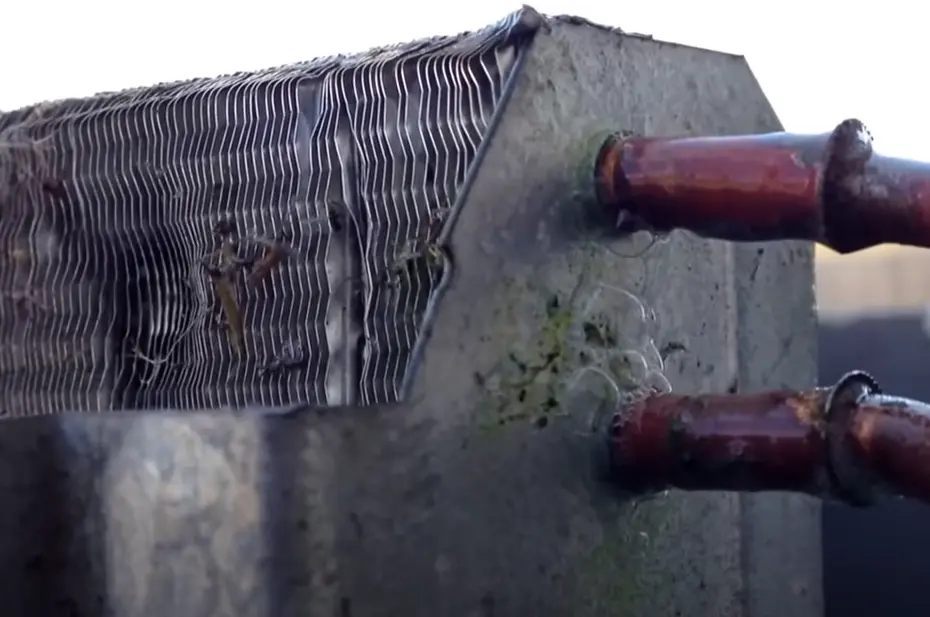A malfunctioning condenser fan motor can be a common issue in Goodman air conditioning systems, often leading to many problems. Your AC condenser fan plays a vital role in the cooling process, as it’s responsible for expelling heat from your home.
When this crucial component fails to function properly, the efficiency and effectiveness of your air conditioner can be severely compromised. One of the primary reasons why the Goodman AC condenser fan motor might not work is due to wear and tear over time, which can lead to motor failure.
This guide will explore the main causes behind this issue and provide insights into how to diagnose and resolve it effectively, ensuring your cooling system operates efficiently.
Understanding the Role of the Condenser Fan Motor
Before we delve into troubleshooting, let’s take a moment to understand the importance of the condenser fan motor in your air conditioning system. The condenser unit, typically outside your home, contains the condenser coils and fan motor.
Here’s how it works:
The refrigerant from the evaporator coil arrives at the condenser unit as a hot, high-pressure gas.
- The condenser coils release heat from the refrigerant, causing it to condense into a liquid.
- The condenser fan motor assists in this heat exchange process by blowing outdoor air across the condenser coils, cooling the refrigerant.
- The now-cooled refrigerant flows back into your home, ready to absorb heat once again.
When the condenser fan motor isn’t working correctly, the outdoor unit cannot efficiently release heat, leading to reduced cooling performance and, potentially, damage to the compressor due to overheating.
Common Reasons for Goodman AC Condenser Fan Motor Failure
Several factors can contribute to the malfunction of the condenser fan motor in your Goodman AC system. Understanding these common reasons is essential for accurate troubleshooting:
Motor Wear and Tear
Over time, the condenser fan motor may suffer from wear and tear. The motor’s bearings can become worn or damaged, and the wiring may deteriorate, causing the motor to stop functioning.
Electrical Issues
Faulty electrical connections or damaged components, such as capacitors or relays, can prevent the motor from receiving power or starting up.
Blocked or Dirty Condenser Coils
Accumulated dirt, debris, or vegetation can obstruct the condenser coils, making it difficult for the fan to release heat effectively.
Overheating
The motor can sometimes overheat due to prolonged operation in extreme conditions or inadequate airflow.
Refrigerant Leaks
Low refrigerant levels can lead to excessive pressure on the compressor, causing it to overheat and, in turn, shutting down the condenser fan motor.
Control Board Problems
Issues with the control board, which sends signals to the fan motor, can disrupt its operation.
Troubleshooting the Goodman AC Condenser Fan Motor
Now that we understand why the condenser fan motor might not be working let’s proceed with a systematic troubleshooting process to identify and resolve the issue:
Always ensure the power to the AC unit is turned off before attempting any troubleshooting or repairs. This includes both the disconnect switch near the condenser unit and the circuit breaker in your electrical panel.
1. Check the Thermostat
Start with the thermostat settings. Ensure it’s set to “cool” and the temperature is below the current room temperature.
2. Inspect the Electrical Connections
Examine the wiring and electrical connections in and around the condenser unit. Loose or damaged wires could be the culprit.
3. Test the Capacitor
The capacitor provides the initial jolt of electricity to start the fan motor. If it’s faulty, the motor won’t start. Use a multimeter to test the capacitor’s capacitance and resistance. If it’s outside the specified range, it needs replacement.
4. Clean the Condenser Coils
Inspect the condenser coils for dirt and debris. Gently clean them using a coil brush, being careful not to damage the delicate fins. Ensure proper airflow around the unit.

5. Check for Refrigerant Leaks
Low refrigerant levels can lead to overheating. If you suspect a refrigerant leak, contact a professional technician to assess and repair it.
6. Test the Motor
Use a multimeter to check the motor windings for continuity. If the motor doesn’t show continuity, it likely needs replacement.
7. Examine the Control Board
Inspect the control board for visible damage, burnt components, or loose wires. If any issues are found, consult a technician to repair or replace it.
8. Inspect the Fan Blade
Examine the fan blade for damage or obstructions. A bent or obstructed fan blade can prevent the motor from turning.
When to Seek Professional Help
If you are uncomfortable with any of the above steps or if the troubleshooting process does not resolve the issue, it’s advisable to seek the expertise of a certified HVAC technician.
They can perform advanced diagnostics, replace damaged components, or recommend the appropriate course of action to restore your Goodman AC condenser fan motor to working condition.
Final Thoughts
In conclusion, a malfunctioning condenser fan motor in your Goodman air conditioning system can disrupt your home’s cooling capabilities. By understanding the common reasons behind this issue and following a structured troubleshooting process, you can diagnose and often resolve the problem yourself.
However, feel free to contact a professional HVAC technician to ensure your cooling system operates efficiently and effectively when in doubt or if the issue persists.

